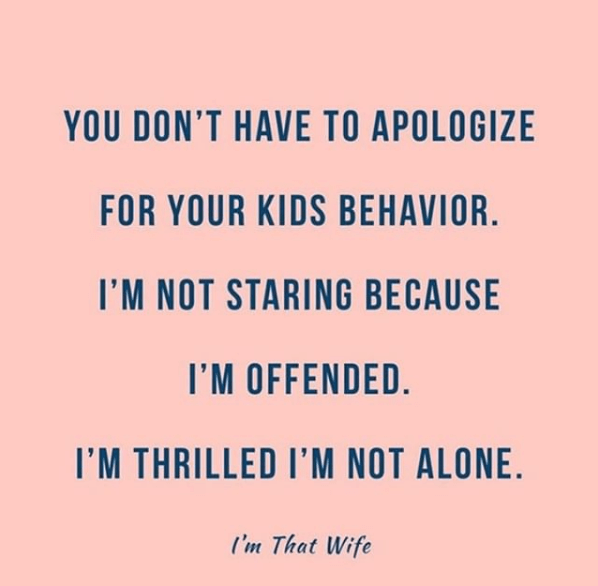
“PDD NOS,” said the developmental pediatrician to my husband and me that summer day in our Upper Eastside apartment. With those six letters — which are so meaningless, nobody even uses that term anymore — she changed the entire course of our lives. At the time, I felt shattered. We finally had an answer to why our beautiful brown-eyed 2-year-old boy would run in circles, page through the same board books over and over again, and had zero interest in interacting with other children. The answer felt like all of the dreams we had for his future — sports, prom, and college evaporated with this diagnosis. This was 15 years ago. At the time, I knew not one fellow parent who had a child with autism. I knew nothing about interventions and therapies and diets.
I allowed myself about a day to hide and cry and feel sorry for myself. The next morning I woke up and started the research. Research that was not at the level it is now. It was the early days of Google. I didn’t know which search words to Google. I found a friend who put me in touch with another NYC mother whose child had been diagnosed the year prior. She patiently sat on the phone with me, suggesting the agencies and therapists I needed to contact. Through this one mom, I was able to connect with a support group where I learned from their hard lessons. I found helpful advice and resources to help my son. This new community gave me a jump start in helping me to learn how to navigate this new world of being a Special Needs Mom.
My second son was diagnosed five years later at the very other end of the spectrum: verbal, social, some would say “high functioning,” but with a host of other challenges. As I write this, with the benefit of 15 years of experience raising not one, but two children on the spectrum, I wish I could tell my 31-year-old self so many things.
If you are reading this and are facing a recent diagnosis of any kind of developmental difference for your child, I can tell you the top 10 things I wish I knew when I heard those six letters.
- The child that developmental pediatrician was talking about was still the same delicious, loved, the spectacular child he was before she added those six letters after his name. My husband expressed this wisdom that very same day. He will still have a beautiful life, he will make a difference, he is still our boy. This has all proven to be true.
- You cannot try every single intervention that exists. Well, you can, but you will be bankrupt and likely no further along than if you hadn’t. Do research. Different interventions are better for different kinds of kids — so, at least some stuff that is evidence-based and widely known. And then try some stuff (therapies/supplements/experimental treatments/healers, etc.) here and there that “speak” to you. Try one new thing at a time so you can really see what is helping.
- Celebrate and nurture your child’s strengths. They may be wildly different than you thought they would be. My son used to make incredible art using candy on my bathroom floor. He was happy and calm when he did it, so we bought bags of candy and let him set it up on our bathroom floor! He has since moved on to other types of artistic endeavors working with his hands. You never know where it will go.
- Set your child and your family up for success. Try to resist the urge to do all of the “kid” activities your friends are doing with their kids. I used to insist on going apple picking every fall because it is a standard autumn family activity where we live. It was a sensory overstimulation nightmare for my kids, and we sweated and struggled every time we went when they were little. I eventually found activities that were more appropriate for my kids (a special needs gymnastics class, therapeutic horseback riding, swimming), and these have been amazing and way less stressful.
- Fight your city/town/school district for everything your child is entitled to. My personality is someone who never ruffles feathers. But when it comes to my kids and what they need academically and socially and emotionally to thrive, I am unstoppable. I know the law (and surround myself with people who know it better-advocate, lawyer) and I will not stop until they have everything.

- Find a friend who gets it. This is huge! Your friends with typical kids may or may not eventually understand and appreciate your “new normal” but it’s so important to find some moms walking a similar path to yours. They know about IEP meetings, you can laugh and cry with them about the lack of sleep, the meltdowns, or whatever insanity you are surviving. Parents raising children with special needs speak their own language, and you need others that are fluent.
- Adapt your expectations but continue to shoot for the stars. You may have to throw away the Harvard sweatshirt, but you will learn so much from your child! My son works harder than anyone I know, and he demands so little in the way of “stuff.” And the little things become everything. The first time he waits in line nicely, the first time you can go to the grocery store without him tearing everything off the shelf. These milestones become more significant than any you could imagine.
- Take care of yourself and your marriage. To be honest, talking about self-care annoys me. It can feel like one more to-do on your list of 300 things you don’t actually have time for. But do something, anything for yourself every day: ten minutes alone to have your coffee or a walk around the block. If you can manage a date night with your spouse once in a while, do it! Raising a child with special needs can be so hard on a marriage. If yours is worth being in, make time for your marriage.
- Have more kids. Some people thought I was insane to have two girls after my two boys were both diagnosed on the autism spectrum, but our plan was always to have a big family, and I knew that typical siblings would be both amazing for my boys and for my husband and me.
- You don’t have a right to the cards you believe you should have been dealt with. You have an obligation to play the hell out of the ones you are holding. (OK, I stole that from Instagram, but whoever wrote it saw inside my soul!)
We started Wolf+Friends app to help moms raising children with special needs meet other moms in their neighborhood who “get it”— See number six! Download the app to connect with likeminded moms, read inspiring content, get shopping tips and find specialists in your area to help with your child’s different needs












